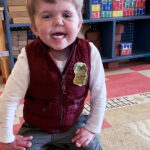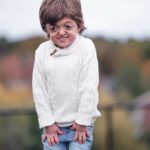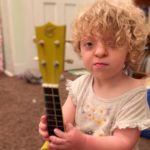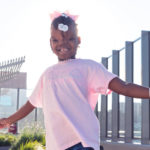Pieces at work: Luca’s experience with Apert syndrome
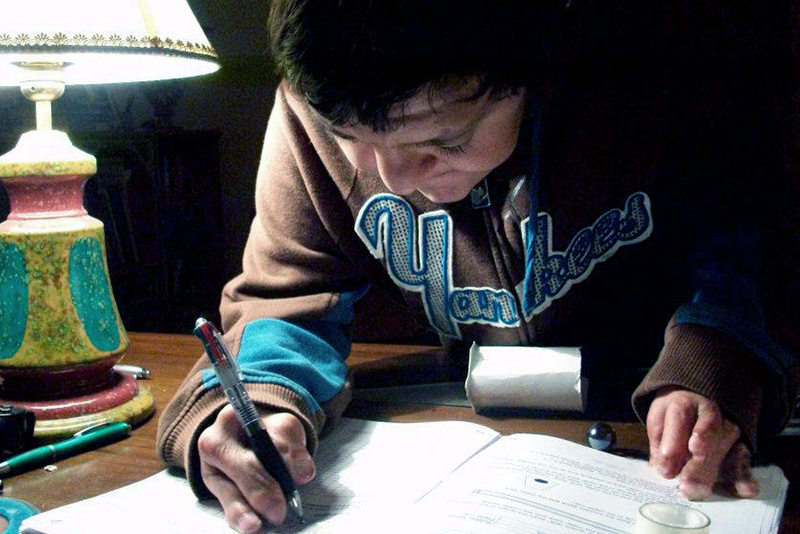
Luca Paolacci, 24, is pursuing his bachelor’s degree in mechanical engineering. It’s a serendipitous major given that it studies how pieces come together to create specific force and movement, and Luca’s personal story is a study of the opposite: how creating separation can build strength, movement, and dexterity.
“It has always fascinated me how tiny components can be harnessed and fastened together to make one giant machine,” Luca says. “It’s a bit ironic — my passion for mechanical engineering — given how many extensive procedures I’ve undergone to create separation between skeletal components in my body.”
Luca was born with Apert syndrome, a rare genetic condition that causes premature closure of the skull as well as fusion of bones in the hands and feet. He has spent most of his life splitting his time between Italy, where most of his family lives, and Boston, where he receives care from the Craniofacial Program and the Hand and Reconstructive Microsurgery Program at Boston Children’s Hospital.
Many pieces in motion
When Luca was a toddler and living in Italy, he underwent his first treatment to begin separating the webbing of his fingers (an effect of Apert syndrome known as complex syndactyly). At the time, his grandfather was in the medical field in the Boston area and was familiar with the innovative work being done at Boston Children’s to address syndactyly, so he helped connect Luca with the Boston Children’s team. In the more than 20 years since, Luca has undergone several procedures with Dr. Brian Labow, Dr. John Mulliken, Dr. Cory Resnick, Dr. Amir Taghinia, and others to expand his skull and further separate and lengthen his fingers and toes. The team’s main goal has been to increase Luca’s hand and foot strength and enhance his fine motor skills — critical for Luca, who’s active in rugby, drumming, and other activities.
“Luckily, I’ve been able to organize my time around these procedures,” Luca says.
That has meant a combination of online learning and homeschooling, as well as traveling to Boston Children’s during school breaks and holidays. His life has been an international balancing act of medical care, academics, friends, family, and hobbies.
“I’ve always had a very active lifestyle,” Luca says. “So, when I’ve traveled to America, it’s been somewhat of a mental challenge to be physically limited by a cast on my arm or leg following surgery. But support and encouragement from my family and friends have helped make all the difference.”
A whole world ahead
Today, Luca’s as busy and active as ever.
When he’s not working part-time for an engineering firm, studying, or completing treatment with Dr. Labow and the Craniofacial team, he’s busy with his friend group in the Boston area, including teammates from the Mystic River Rugby Club in nearby Malden.
As for what’s next, Luca’s applying to summer engineering internships in Boston and Italy. He plans to continue his job at the engineering firm and receive his mechanical engineering degree within the next two years. After that, he says he’s open to anything.
“If my journey takes me to Italy or the States, then why not? That’s quite all right with me.”
Learn more about the Craniofacial Program and the Hand and Reconstructive Microsurgery Program at Boston Children’s Hospital.
Related Posts :
-

Sonny’s story: How an online Apert syndrome community set one family on a path to Boston
Sonny Daniel has had a busy summer. Between traveling, camp, and time with family and friends, this 4-year-old has constantly ...
-

Weathering the storm of Apert syndrome: João’s story
After a “perfect” pregnancy in 2017, Natalia and Igor of Brazil were excited to meet their third child. They were shocked ...
-

Maisie’s story: Our journey with Apert syndrome
Our daughter Maisie is 4 years old. She loves riding her bike, baking, jumping on the trampoline, and keeping up ...
-

New year, new face, same spirit: Zoey’s journey with encephalocele and cleft lip care
Seven-year-old Zoey loves school, her friends, and everything unicorn. She’s outgoing and happy and has an eye for looking ...


